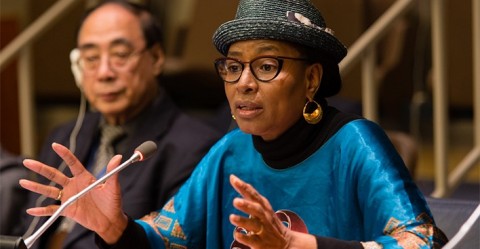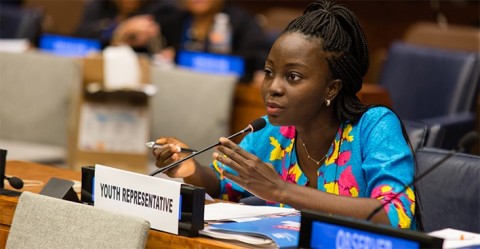
SDG-Education 2030 Steering Committee
worldmap-3.jpg

Education 2030 and the Agenda for Sustainable Development
The 2030 Agenda for Sustainable Development comprising of 17 goals, adopted by the global community in September 2015, is a plan of action for people, planet and prosperity. Deemed central to the realization of this universal and aspirational agenda, education is articulated as a standalone goal, Sustainable Development Goal 4 (SDG4), which aims to “ensure inclusive and equitable quality education and promote lifelong learning opportunities for all.” Education also contributes to the achievement of all other SDGs – namely those related to ending poverty (SDG1), health and well-being (SDG3), gender equality (SDG5), decent work (SDG8), reducing inequalities (SDG10), sustainable cities (SDG11), responsible consumption and production (SDG12), climate action (SDG13), peace (SDG16) and partnerships (SDG17).
What is the SDG-Education 2030 Steering Committee?
The SDG-Education 2030 Steering Committee is the global multi-stakeholder coordination mechanism for education in the 2030 Agenda. Its primary objective is to harmonize and strengthen support to Member States and their partners to achieve the education-related targets of the global agenda.
Established in 2016, the Steering Committee is a platform that provides a forum to ensure more coordinated support for the realization of education targets and commitments. Hosted by UNESCO, it is mandated to provide strategic guidance to Member States and the education community, make recommendations for catalytic action, advocate for adequate financing, and monitor progress toward education targets through the UNESCO Institute for Statistics and the Global Education Monitoring report.
The Steering Committee is composed of 38 members representing a majority from Member States, the World Education Forum 2015 convening agencies (UNESCO, UNDP, UNFPA, UNHCR, UN Women, ILO, the World Bank), the Global Partnership for Education, the OECD, regional organizations, teacher organizations, civil society networks, in addition to representatives from the private sector, foundations, youth and student organizations.
How does it work?
The SDG-Education 2030 Steering Committee meets once or twice a year to provide strategic advice on priority issues. It is supported by four working groups, which contribute technical input and recommendations in the following areas:
1. Policies and strategies: develops recommendations on follow-up actions at global, regional and country level to facilitate implementation of SDG4. It bases its guidance on the Global Education Monitoring report findings and recommendations, as well as on other resources which review progress on policies and strategies on implementation of education targets.
2. Financing of education: suggests strategies and recommendations on finance and resource mobilization for Education 2030; engages, with other global financing mechanisms for education; and seeks means to align and avoid duplication of efforts.
3. Review, monitoring and reporting: proposes recommendations on the monitoring and indicator framework implementation at global, regional and national levels; harmonizes perspectives across partners around review, monitoring and reporting on SDG4 targets; and facilitates the endorsement of indicator frameworks as elaborated by the Technical Cooperation Group, led by the UNESCO Institute for Statistics.
4. Advocacy and communication: shares information and resources across the different constituencies, develops key messages and proposes actions to advocate for increased political commitment to SDG4–Education 2030 based on the findings of the Steering Committee working groups.
How does it link to the United Nations SDG structure?
One of the key roles of the SDG-Education 2030 Steering Committee is to ensure the systematic alignment of approaches for education-related targets within the wider United Nations SDG structure. The Steering Committee engages with the wider United Nations SDG structure at global and regional levels. At the global level, it provides inputs for follow-up and review of the 2030 Agenda through United Nations processes, including the High-Level Political Forum. At the regional level, the Steering Committee interacts with regional organizations, SDG4 coordination groups, and other partners to ensure a more harmonized support for implementation, monitoring and review of Education 2030.



